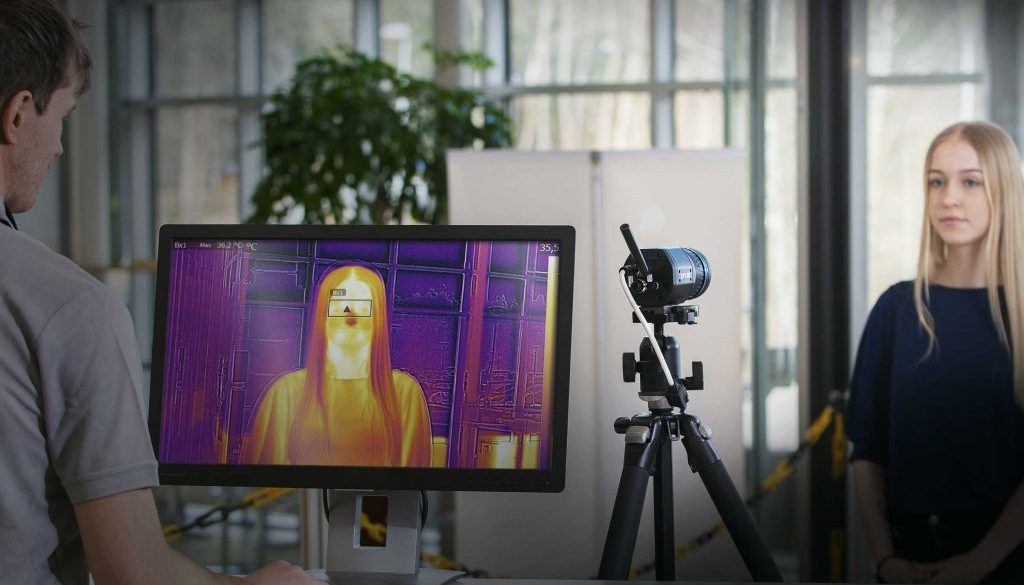USA: Temperature screening, pandemic drones and workplace contact-tracing apps
In March, state governors across the United States of America announced lockdown measures in response to Covid-19. Since then states have turned their attention to contact tracing and taking different approaches to these systems.
Some states are developing contact-tracing apps but it’s unclear how popular these are and/or will be with a Washington Post-University of Maryland poll showing that only half of smartphone users polled in the US said they would use an Apple-Google Covid-19 contact-tracing app.
Such sentiment may explain why only 25,000 people in North Dakota, about 3 percent of the state’s population, have downloaded the state’s voluntary app that relies on tracking users’ location as they move.
It’s also not just state authorities looking at apps as private global companies, such as PwC, are also considering a contact-tracing app for their staff to permit them to return to work.
Concerns
In April, the American Civil Liberties Union (ACLU) wrote a white paper outlining their detailed concerns about automated, location-based contact-tracing devices in response to Covid-19 and highlighted the limits of these devices.
In the same month, the ACLU published a set of technology principles for developers, policymakers and members of the public to govern proximity-based apps. The principles lay out what safeguards must be in place if/when a proximity-tracking app is developed.
This list of principles include calls that apps or other technological solutions must be voluntary; the data should not be used for any other purpose than public health; that the minimal amount of data is collected; that the technology and data is deleted immediately after it is no longer necessary; that authorities must be utterly transparent about what data it will collect and how it will be used; and that there is no opportunity for mission creep regarding the app.
A second Covid-19 technological response that is causing surveillance concern is temperature checking that is taking place in some workplaces, businesses, and other public venues.
False negatives
An examination of this practice by ACLU has shown that there are serious questions around the accuracy and efficacy of these temperature-checking tools and the conclusion that they can lead to false positives and false negatives, both of which can result in waste of resources but also real-life consequences for people whose employment or mobility relies on the temperature check result.
There are also concerns about mission creep.
ACLU’s research followed police in Westport, Connecticut announcing that they would test a Draganfly “pandemic drone”. Connecticut was the first US municipality to test this drone technology in response to Covid-19 but this was an experiment which was abandoned before deployment due to privacy concerns, after it was criticised by ACLU.
This piece of technology had sensor and vision systems that claimed the ability to detect, from a distance of 190 feet, a person’s temperature, heart and respiratory rates, detect people sneezing or coughing in a crowd and measure social distancing.
Further surveillance concerns arise around the development of immunity passports.
ACLU has highlighted that immunity passports, which would pave the way for certain people who have Covid-19 antibodies to return to work before other people, could encroach on privacy rights, result in a new, discriminatory system to collect health data and maybe incentivise some people to risk their health by get Covid-19 in order to return to work.
Pic: Flir
(Labelled for non-commercial re-use)

